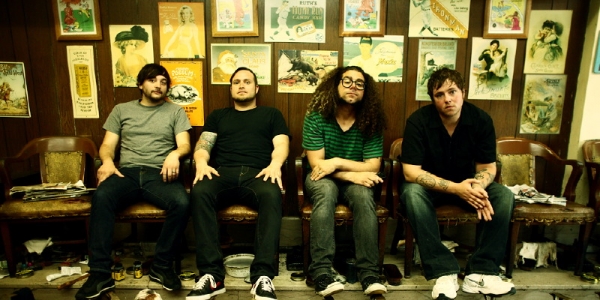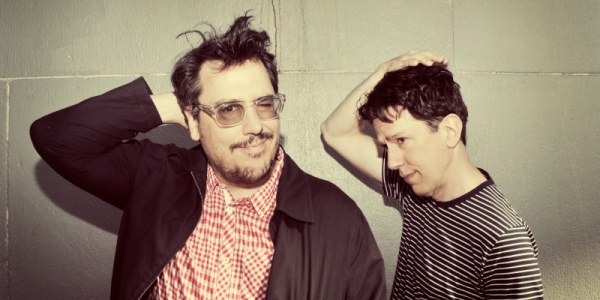The characters, concepts, and narratives from this graphic novel series weaved their way into the music of Coheed and Cambria (the name of the band is the names of two of the protagonists in the story). Their music is almost indefinable (literally, that’s not wanker PR hyperbole) and while it’s weighed heavily by the concepts it carries, the quality of the songs are never sacrificed for the sake of the story.
Sanchez, despite being chatty and extremely affable to talk to, has confessed many times to being socially awkward and extremely shy. So how much of him makes its way into these stories? “I’m in all of it,” Sanchez says. “It’s funny, today I’m sitting in my apartment trying to text a friend of mine and like, small conversations and just being a human being can be such a task for me – it’s kind of hilarious. I asked my wife, ‘I got this text today, how do I respond to this text?’ It’s like I’m borderline psychotic or something but with songs it’s so easy for me to be normal. They allow me to work out everything.
“That’s what The Amory Wars was, a way for me to communicate without actually having to give too much away. I don’t want the listener to know and that’s just me, I’m shy and reclusive and I don’t want them to know details, but I need that release as an artist and a human being. Otherwise, I’d be like a pressure cooker waiting to burst.”
There are a host of meaningless adjectives that can be assigned to Coheed and Cambria’s music but it seems pointless. Theirs is a story, a concept that goes beyond Pink Floyd’s The Wall or Tyler, The Creator’s Goblin, and that’s not a comparison of musical ability, it’s just that Coheed’s chronicle is so thoroughly realised and explored. So where does that leave them with regard to festival lineups and iTunes listings?
“I never wanted to create walls with Coheed so unfortunately if it makes things difficult for people outside of the band, so be it,” he says without a hint of arrogance, merely acceptance. “We adore it and for me music isn’t so much about how it works outside of the creation but within that circle. Also, to see how our fans react to such diverse songs is a really good interaction whether or not they hate them or love them. It can be discouraging at times when people don’t know what to do with the band but you know what? It’s always been that way even before we were involved with record labels and in the industry.”
The Afterman: Descension is the second album of the The Afterman double album and takes on the role of a prequel of sorts. Despite being so attached to The Afterman: Ascension, it was released almost a whole year after that first album. “When arranging Ascension it really had a cliff-hanger quality to it so that’s why we gave that space between releases,” he says. “It’s also a lot of material and it’s a lot to expect people to be able to absorb all of that material at once. I wanted the questions to digest in the listeners mind and then have the second record answer all of those. That first record kind of jumps around because that’s how the character’s mind is. But Descension kinda comes together because things are falling apart all around him. In his perception, he’s lost everything and he’s in the worst part of his life so everything that follows is very straight to the point and impactful.”
The story is so complex and involved that a brief explanation is pointless. The albums and the graphic novel series are not necessarily inextricably linked but do serve each other well. The complex world and characters that Sanchez has created has even caught the eye of left-field producer Mark Wahlberg and his partner in crime Steven Levinson of Leverage Productions and is set to be made into a life action feature film. As long as George Lucas and Peter Jackson are nowhere near it, it should be a truly fantastic film. Fans of Coheed and Cambria can’t help but wonder though, if the band will reach a resolution when the story does. How much more life has the story got and is an end in sight?
“No not at all,” he says. “The Amory Wars, in terms of it being within Coheed and Cambria, that was completed really with Year Of The Black Rainbow. The Afterman is really a telling of the past and Sirius Amory’s experiences. For me, this concept has really taken on more of a life of its own than I ever thought. Even though there is an ultimate conclusion in those last records I feel like it can still live on in these new records and there’s also still so much to tell. I didn’t have a concept when I started to write, the concept came after when I realised, ‘Oh my god, I can tell this story’. I can’t really envisage Coheed without a concept but the concepts are everywhere and they’re great partners.”
BY KRISSI WEISS

